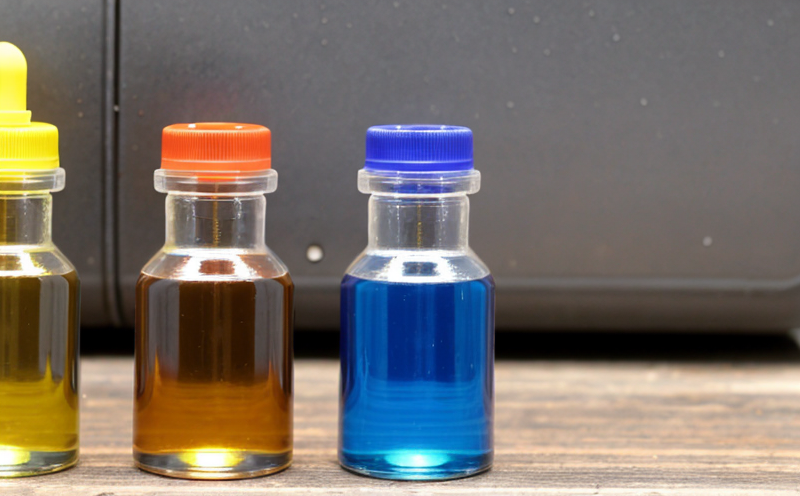Tea pH Testing
The process of tea pH testing is a critical aspect in ensuring product quality and compliance with international standards. This service involves precise measurement of the acidity or alkalinity of tea infusions, which directly impacts flavor profile, preservation methods, and consumer health considerations. The pH scale ranges from 0 to 14, where values below 7 indicate acidity, above 7 indicate alkalinity, and 7 is neutral.
For tea products, the ideal pH range varies depending on the type of tea (green, black, white, etc.). For instance, green teas generally have a lower pH (more acidic), while black teas tend to be closer to neutral. This variation in pH levels affects not only the taste but also the stability and shelf life of the product.
The testing procedure typically begins with preparing a standardized tea infusion according to specific ratios of tea leaves to water, ensuring consistent results across samples. The infusion is then allowed to cool to room temperature before measuring its pH using a calibrated pH meter or glass electrode. It's important that the equipment used for measurement is accurate and regularly calibrated to avoid errors.
In addition to standard laboratory practices, some advanced techniques such as titration can be employed to validate initial readings obtained from automated meters. Titration involves gradually adding known amounts of base (for acidic solutions) or acid (for basic solutions) until the endpoint is reached, marking a neutral pH point.
Accurate tea pH testing plays a crucial role in quality assurance processes by helping manufacturers identify potential issues early on during production. By maintaining consistent pH levels within acceptable ranges specified by international standards like ISO 6709 or ASTM D1142, companies can ensure their products meet regulatory requirements and consumer expectations.
Regulatory compliance is another key consideration when performing tea pH tests. Many countries have specific guidelines regarding the maximum allowable acidity levels for certain types of beverages to protect public health. Regularly monitoring pH ensures that these limits are adhered to throughout all stages of product development and distribution.
- Competitive Advantage: Consistently accurate pH testing allows tea producers to differentiate their offerings based on superior quality control practices. This can lead to enhanced brand reputation, increased customer satisfaction, and competitive advantage in both domestic and international markets.
- Market Impact: Inaccurate pH levels could result in product recalls or legal actions due to health concerns linked to excessive acidity. By offering reliable testing services, laboratories support industry-wide efforts towards safer food and beverage production practices.
Applied Standards
The measurement of tea pH follows several international standards that provide guidelines on methodology and acceptable ranges for different varieties of tea. These include ISO 6709, which specifies general principles for determining the pH value of liquid products; ASTM D1142, which details procedures for measuring the acidity or alkalinity of water-soluble materials; and EN 388, which covers requirements for gloves used in chemical laboratories.
For black tea specifically, additional considerations might involve adhering to EU regulation (EC) No. 1935/2004 concerning materials and articles intended to come into contact with foodstuffs, ensuring that any chemicals involved in pH testing do not contaminate the final product.
The chosen standard(s), along with relevant national regulations, serve as benchmarks against which test results are compared. Compliance with these standards helps ensure consistency and reliability across various batches of tea products, thereby enhancing overall consumer safety and satisfaction.
Why Choose This Test
Selecting the right pH testing service is essential for maintaining high-quality tea products that meet both consumer preferences and regulatory standards. Properly conducted pH tests offer several benefits:
- Better Product Quality: Accurate pH levels contribute to more enjoyable drinking experiences by enhancing flavor profiles and extending shelf lives.
- Improved Compliance: Adhering strictly to specified limits ensures that products comply with all necessary regulations, avoiding potential fines or market withdrawals.
- Innovation Opportunities: Understanding how pH affects different types of tea can inspire new formulations and product lines tailored specifically for various customer segments.
- Enhanced Reputation: Demonstrating commitment to quality through rigorous testing fosters trust among stakeholders, including consumers, retailers, and other industry partners.
In summary, choosing a reliable pH testing service not only guarantees adherence to current standards but also opens up avenues for innovation while safeguarding brand reputation.
Competitive Advantage and Market Impact
Accurate tea pH testing offers significant advantages in competitive markets by enabling producers to consistently deliver high-quality products that meet or exceed customer expectations. Here’s how this service contributes:
- Precision Measurement: Using state-of-the-art equipment and methodologies ensures precise measurements, leading to more reliable test results.
- Rapid Turnaround Times: Efficient processes allow for quick turnaround times, reducing lead times between testing cycles and product release dates.
- Comprehensive Reporting: Detailed reports provide insights into various aspects of tea pH, helping manufacturers optimize formulations and processes further.
- Sustained Quality: Consistent results over multiple batches support sustained quality levels throughout production runs, ensuring uniformity across all products.
In today’s competitive environment, where consumer demand for transparency about ingredients and processing methods is increasing, accurate pH testing becomes even more crucial. It not only satisfies regulatory requirements but also builds confidence among consumers regarding the safety and efficacy of tea products.





